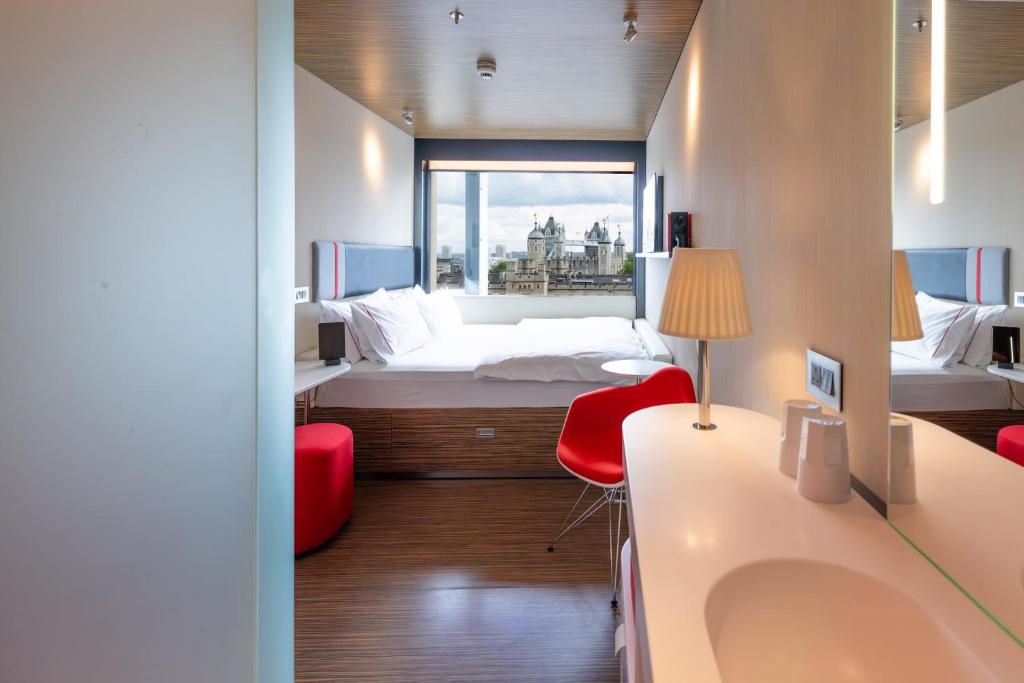A Home Away from Home: Why Loyalty Matters for Remote Nomads
Working from anywhere is freeing, but it can feel unstable. Hotel loyalty programs turn transient stays into a reliable base. They offer consistency, comfort, and small comforts that add up.
This article shows how memberships and perks transform travel into dependable routines. You will learn why loyalty matters beyond free nights. Expect practical tips on choosing the right program, perks that boost productivity, and smart earning and redemption strategies.
I’ll also share real routines from remote nomads who use points to simplify daily life. These examples show how benefits like lounge access, room upgrades, and late checkout become part of a steady workday. Read on to discover how to turn hotel stays into a stable, productive lifestyle that reduces friction and adds real value. By the end, you’ll know which programs match your needs and how to maximize benefits.




Unlock Hotel Upgrades: A Beginner’s Guide to Travel Perks
Why Hotel Loyalty Programs Are a Game-Changer for Remote Workers
Consistency where it counts: workspace, Wi‑Fi, and quiet
Remote work depends on predictable conditions. Loyalty status gets you rooms that are more likely to include a proper work desk, ergonomic chair, and a quieter corner—so you waste less time hunting for a workable setup. Many programs prioritize high‑floor or corner rooms for members, and staff familiar with repeat guests are quicker to fulfill requests like a room away from elevators or a quieter air‑conditioning unit.
Tangible financial and lifestyle gains
Memberships translate into real savings and convenience:
Treat perks strategically: use free breakfasts and lounge access as “workshop days” when you need focused blocks of time outside the room.
Soft benefits that compound over time
Beyond money and amenities, repeated stays build human capital. Front‑desk staff learn your preferences, housekeeping follows your schedule, and managers route problems through known channels—so if the Wi‑Fi drops, resolution is faster. Local brand partnerships (co‑working credits, restaurant deals, gym access) often unlock when you reach certain tiers, turning one-off travel pain points into local conveniences.
Practical, immediate steps to make loyalty work for productivity
These advantages—predictable work conditions, cost savings, and smoother service—turn itinerant setups into repeatable, low‑friction routines. Next, we’ll look at how to choose the loyalty program that best matches your remote life and travel cadence.
How to Choose the Right Loyalty Program for Your Remote Life
Start with where you actually go
Map your most-visited cities and neighborhoods before signing up. A “global” program is only useful if it has properties where you work and live: downtown business districts, suburban aparthotels, or beach towns. If you split time between New York and Lisbon, prioritize a brand with strong footprints in both places rather than one that’s abundant only in one region.
Prioritize operational essentials: Wi‑Fi and workspace
For nomads, internet and a usable workspace beat free minibar items. Look for programs that consistently deliver:
Weigh elite perks that actually save you time
Not all status perks are equal. Rank these by impact:
A mid-tier elite that reliably gets late checkout and lounge access can be more valuable than top-tier status with inconsistent upgrades.
Read the points fine print
Compare earning rates, elite bonus multipliers, and redemption ease:
If you prefer long stays, favor programs that let you redeem multi‑night awards cheaply or offer apartment-style properties.
Partnerships and long‑stay amenities
Check partner ecosystems: airline transfers, co‑working credits (WeWork, Deskpass), ride credits, and local experience vouchers multiply value. Also look for in‑room kitchenettes, laundry access, and grocery partnerships—handy when you stay weeks at a time.
Match program to your travel rhythm
Ask yourself:
Test and stay flexible
Try 1–2 short stays to validate Wi‑Fi and staff responsiveness before committing. Keep options open: hold memberships in two complementary programs (one for urban business hubs, one for suburban aparthotels) and use status-matching offers when opportunistic promotions appear.
Perks That Directly Boost Productivity and Comfort
Once you’ve chosen a program that fits your map and rhythm, the real value shows up in daily living: the tangible perks that make work feel seamless. Below are the membership benefits that most directly improve a remote worker’s day, how to use them, and quick product or service examples where helpful.
Connectivity & workspace essentials
Reliable internet and a real desk change everything. Ask for guaranteed high‑speed tiers or business-floor rooms when booking.
In-room power, lighting, and tech conveniences
Small details keep flow unbroken—power placement and good lighting.
Fuel and focus: breakfast, lounges, and quiet blocks
Food and environment shape deep work.
Operational perks that save time
Reduce friction for client work and timezone juggling.
Lesser-known but high-impact conveniences
Tiny benefits add up on long trips.
How to stack amenities into a routine
Combine perks for repeatable productivity: start with lounge breakfast, move to your in-room ergonomic desk for deep work, use a midafternoon meeting‑room credit for client calls, and finish with late checkout on busy travel days. Over time, this stack becomes a reliable, low-friction workflow you can recreate at each property.
Smart Strategies to Earn and Redeem Points Like a Pro
Prioritize where points multiply
Not all nights are equal. Target hotels and dates that give high base points or run bonus promotions (seasonal bonuses, credit-card welcome offers, or targeted “double nights” promos). If a property runs a 50% bonus on stays that month, shift a cheaper weekend into that window and lock in outsized earnings.
Use co-branded cards responsibly: pay recurring travel bills on them, but avoid carrying a balance just to chase points.
Claim status, matches, and targeted offers
Status unlocks upgrades, lounge access, and late checkout—big wins for nomads. Look for status match windows (many programs allow a one-time match when switching loyalty homes) and enroll for targeted offers in the app or email; they often include accelerated earning or free-night coupons.
Stack discounts and corporate rates
You can often combine corporate/AAA/government rates with loyalty earnings or use a third-party promo code at booking—confirm terms first. Small corporate rates plus points earnings turn into a cheaper, upgradeable base without sacrificing benefits.
Tactical redemptions for long-term comfort
Think beyond single nights:
Example: swapping a 1-night paid stay for a 3-night points booking during a lull can be more economical and less disruptive for work rhythm.
Avoid the common traps
Watch for devaluations, blackout dates, and loyalty programs that change award charts. Don’t optimize points at the expense of convenience—missing a client call for a cheaper award stay is a false economy.
Track value per point
Quick calc: value-per-point = cash rate / points required. If a $240 room costs 30,000 points, value = $240 ÷ 30,000 = $0.008 (0.8¢/pt). As a rule of thumb, redeem when value meets or exceeds your personal threshold (often 0.7–1.0¢/pt), or when the soft benefits (space, quiet, workspace) are worth the extra.
With these tactics in your toolkit, you’ll be set to convert everyday travel into lasting comfort and productivity. See how nomads apply these moves to daily routines next.
Real Routines: How Remote Nomads Turn Perks into Daily Wins
After the tactics above, here are four real-world routines showing how small, repeatable habits turn loyalty perks into everyday comfort and productivity.
Solo remote worker: lounge access + late checkout
Routine: book midweek stays near a business hub, use airport or hotel lounge for focused morning work, return to room for a late checkout to overlap a late-afternoon client in another timezone.
Concrete habits:
Quick scripts to try at check-in:
Family nomad: suite upgrades + free breakfast
Routine: secure a suite with separate sleeping and working zones, use complimentary breakfast to simplify mornings, and schedule child-friendly mornings while blocking focused afternoon work hours.
Concrete habits:
Budget-minded long-stayer: points + extended-stay rates
Routine: combine points redemptions with extended-stay discounts, opt out of daily housekeeping when appropriate, and use on-property laundry or a local laundromat.
Concrete habits:
Hybrid traveler: co‑working credits + meeting rooms
Routine: use hotel co‑working credits for day passes, reserve a small meeting room for client presentations, and layer in restaurant breakfasts for informal meetups.
Concrete habits:
These short, repeatable routines show how tiny behaviors—communicating preferences, asking politely, logging benefits—compound into major gains. Up next: practical steps to make loyalty work for your remote life in the Conclusion.
Make Loyalty Work for Your Remote Life
Audit your travel patterns, pick a program that matches your priorities, and experiment with perks until they become dependable parts of your routine. Start small: try a short test stay, activate priority benefits like early check-in, quiet-room requests, or breakfast credits, and note what truly improves your focus and comfort. Treat points as tools, not goals—use them to buy convenience that saves time and reduces friction in your days.
Iterate based on real needs: swap programs if your routes change, consolidate stays when a preferred brand aligns with a longer stretch, and share feedback with hotel staff to lock in repeatable benefits. Over time a few thoughtful choices will transform hotels from temporary shelters into predictable, productive bases. Make loyalty work for you—one intentional stay at a time. Start today: map upcoming trips, enroll where it matters, and enjoy days on the road.










Good overview but I’m still confused about point transferability.
Can I earn points at citizenM Tower of London and redeem for stays at The Legian Seminyak Bali? Or are these all separate schemes?
If anyone has done an inter-brand redemption, spill the tea ☕
Short answer: usually no — most hotel loyalty programs are brand-specific unless they’re part of a larger alliance. But some booking platforms let you use credits or deals across properties. Always check the T&Cs of each program.
I once used a booking platform credit to book a seminyak stay after accumulating perks elsewhere. Not a direct point transfer but worked as a workaround.
This piece really made me rethink loyalty — especially the ‘Make Loyalty Work for Your Remote Life’ bit.
Question for others: Has anyone done multi-week stays using loyalty perks (like suite upgrades or complimentary breakfasts) at The Legian Seminyak Bali or The Hoxton Amsterdam?
I’m planning a three-week stretch in Bali and wonder if stacking loyalty nights gets you into better long-stay rooms or just small perks.
Also, curious about community spaces — are they open all day? I need reliable spots for afternoon calls.
Would love real examples from people who did long stays.
At The Hoxton Amsterdam I used points for part of my stay and paid for the rest. They gave me lounge access for a fee, which made afternoon calls way easier.
Thanks everyone — super helpful. Negotiating directly seems to be the theme. I’ll try reaching out to the property manager before booking.
Marta’s experience lines up with what we’ve heard — long-stay pricing often trumps small loyalty perks for value. Worth negotiating directly with the property.
Great question, Hannah. Long stays can unlock more tangible perks, but it depends on the hotel policy. Some properties offer long-stay rates and additional inclusions (breakfast, laundry) — we’ll collect user stories to add to the article.
I did a month in Seminyak last year. Booked a long-stay rate and negotiated weekly housekeeping + a faster Wi‑Fi package. They rarely upgraded to suites automatically, but the manager did offer a discounted upgrade for a week mid-stay.
Haha, the “A Home Away from Home” section made me chuckle — since when is hotel breakfast the same as your mum’s dal? 😂
That said, citizenM Tower of London has surprisingly comfy chairs for long calls. Who knew?
Also, anyone else accidentally turn “workcation” into a full vacation?
Relatable! The line between workcation and vacation is dangerously thin. The article tried to highlight routines that help maintain productivity without killing the holiday vibe.
Totally loved the section on productivity perks — those workspaces in hotel rooms are a game changer for me.
I stayed at The Hoxton Amsterdam — Canal House Boutique Hotel last month and the desk setup actually made me finish a project ahead of schedule.
Also curious if anyone has compared the Wi‑Fi speeds at The Hoxton vs citizenM New York Times Square?
Tiny rant: hotels that advertise “business ready” but give you one sad lamp are not cool 😂
Overall, great read!
I stayed at citizenM NY last year — solid speeds in the business corner. The Hoxton’s vibe is cozier though, so depends if you prefer mood or brute bandwidth.
Agree with Liam. Also pro tip: ask reception for a room on a higher floor away from the street — that helped reduce noise and improved my Zoom experience at The Hoxton.
Thanks Sarah — glad that tip helped! We don’t have a formal speed comparison, but a lot of nomads report more consistent bandwidth at citizenM properties in major cities. Might be worth checking recent reviews for exact numbers.
Great tip @Nora. We’ll add a note about checking room location in future updates of the article.
A couple of strategies that have worked for me as a long-term nomad:
1) Stack offers: use a credit card bonus + hotel promo + loyalty points when booking citizenM New York Times Square.
2) Mix short city stays with one luxury reset — I do city work at citizenM then splurge a weekend at The Legian Seminyak Bali to recharge.
3) Always ask for a late checkout if you have a late flight — many properties give it free at higher tiers.
Hope this helps someone!
Fantastic practical tips, Javier — stacking is underrated. We might expand the ‘stacking’ section with example calculations next time.
Late checkout saved me so many times. Pro tip: offer to share a positive review in exchange — worked once for me.
Nice tactic, Hector. Just be genuine in the review — hotels can smell fake praise a mile away 😄
Useful read but I wish you had dug deeper into blackout dates and upgrade restrictions. I spent ages trying to use points at The Hoxton Amsterdam — Stylish Rooms in Canal Houses only to find the dates blocked out for “peak season”.
This is the real snag for nomads who plan months ahead.
Also, loyalty tiers are often opaque — how many nights actually count toward status? Is weekend stay the same as weekdays?
Would love a follow-up with concrete examples and a comparison chart.
Not bashing the article — just hungry for more nitty-gritty.
Great feedback, Tom. You’re right — blackout dates and different night credit rules vary widely. We’re working on a dedicated FAQ that will include specific examples for common properties like The Hoxton and citizenM.
Totally — had the same issue with Hoxton last summer. Pro tip: call the loyalty desk directly; sometimes agents can find a room that the online system won’t show.
We’ll include a step-by-step ‘call script’ and sample questions nomads can use when contacting loyalty desks in the next piece.
Also watch out for conversion rates when using points for upgrades. It can be a trap — you might be better off paying for a discounted upgrade during off-peak times.
Agree on the chart idea. A quick table showing blackout examples and nights-to-status would be super helpful.
Thanks all — calling the loyalty desk is a good shout. Hope the follow-up includes Legian Seminyak Bali too; beachfront luxury = different rules, I bet.
Loved the “Real Routines” section — the sample daily schedule they suggested actually worked for me this week. Very practical.
Plus, the little notes about using hotel laundry and dry-cleaning to save time were unexpectedly clutch.
Typo alert though: there’s a missing word in the “Smart Strategies” paragraph (I think you meant “earn points faster”).
Keep ’em coming! 🙂